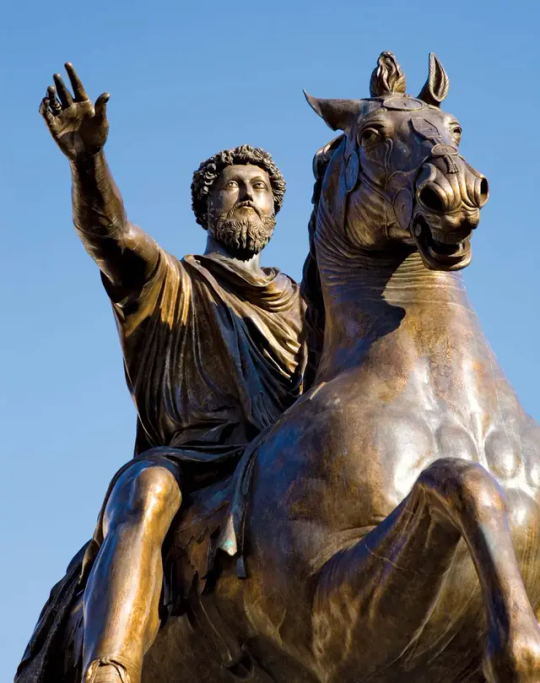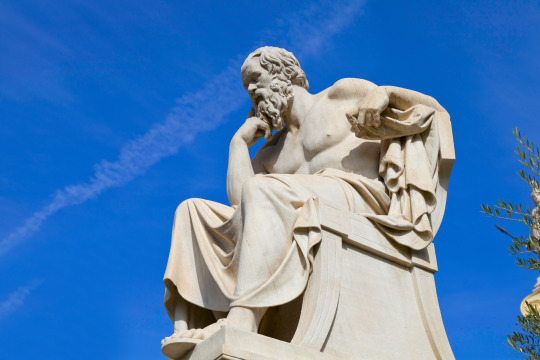#PhilosophicalLegacy
Text
"Men speak opinions, not facts. Our eyes see perspective, not truth."

Marcus Aurelius Antoninus was Roman emperor from 161 to 180 AD and a Stoic philosopher.
#RomanHistory#StoicismPhilosophy#EmperorMarcusAurelius#RomanEmpire#PhilosopherKing#WisdomOfTheAges#StoicWisdom#AncientPhilosophy#LeadershipPhilosophy#HistoricalFigures#RomanLeadership#PhilosophicalLegacy#ClassicalCivilization#ImperialRome#Epictetus#Meditations#RomanStatesman#PhilosophicalThoughts#today on tumblr#quoteoftheday
10 notes
·
View notes
Text
"I am what I choose to become."

Jean-Paul Charles Aymard Sartre was a French philosopher, playwright, novelist, screenwriter, political activist, biographer, and literary critic, considered a leading figure in 20th-century French philosophy and Marxism. Sartre was one of the key figures in the philosophy of existentialism.
Born: 21 June 1905, Paris, France
Died: 15 April 1980 (age 74 years), Paris, France
Existentialist Philosopher: Sartre is often regarded as the father of existentialist philosophy. He emphasized the individual's freedom and responsibility in creating their own essence and values. His most famous dictum, "Existence precedes essence," encapsulates the core idea that human existence is not predetermined and that individuals define themselves through their actions.
Prolific Writer: Sartre was a highly prolific writer and produced a vast body of work. Some of his notable philosophical works include "Being and Nothingness," "Existentialism is a Humanism," and "Critique of Dialectical Reason." In addition to philosophy, he wrote plays, novels, and essays, contributing significantly to literature and the arts.
Literary Achievements: Sartre was not only a philosopher but also a celebrated literary figure. He won the Nobel Prize in Literature in 1964, but he declined the award, stating that he always declined official honors. His literary works include plays like "No Exit" and "The Flies," as well as novels such as "Nausea" and "The Roads to Freedom" trilogy.
Political Engagement: Sartre was actively engaged in politics throughout his life. He aligned himself with leftist and Marxist ideologies and was involved in political activism. He criticized colonialism, supported anti-imperialist movements, and was a prominent figure in the French intellectual and political scene during the mid-20th century.
Life and Relationships: Sartre had a complex personal life. He had a lifelong romantic and intellectual partnership with Simone de Beauvoir, another influential existentialist philosopher and writer. Despite their deep connection, they maintained a non-traditional, open relationship. Sartre's experiences during World War II, including his time as a prisoner of war, also influenced his philosophical and political views.
#JeanPaulSartre#Existentialism#Philosopher#Playwright#Novelist#Literature#NobelPrize#PoliticalActivist#SimoneDeBeauvoir#FrenchPhilosopher#BeingandNothingness#Nausea#NoExit#CriticalTheory#Humanism#Freedom#PhilosophicalLegacy#ParisIntellectuals#OpenRelationship#PoliticalEngagement#quoteoftheday#today on tumblr
2 notes
·
View notes
Text
" Awareness of Ignorance is The beginning of Wisdom.

Socrates, the ancient Greek philosopher. Here are five facts about Socrates:
Philosopher of Classical Greece: Socrates (469–399 BCE) was a classical Greek philosopher and a key figure in the development of Western philosophy. He is often credited with laying the groundwork for the Western philosophical tradition.
Socratic Method: Socrates is best known for his method of teaching, which is now called the Socratic method. Instead of lecturing, he engaged in dialogues with his students, asking them a series of questions to stimulate critical thinking and illuminate ideas. This method is still used in modern education.
Never Wrote Down His Ideas: Socrates did not leave behind any written records of his teachings or philosophy. Most of what we know about him comes from the writings of his students, primarily Plato, who documented Socratic dialogues and discussions in their works.
Charged and Executed: Socrates' unorthodox teachings and questioning of traditional beliefs led to his being charged with impiety and corrupting the youth of Athens. In 399 BCE, he was sentenced to death by drinking hemlock, a poisonous substance, as depicted in Plato's "Phaedo."
Philosophical Focus: Socrates was concerned with ethical questions and the pursuit of virtue. He often questioned the commonly held beliefs of his time, seeking a deeper understanding of concepts such as justice, piety, and the nature of the good life. His philosophical inquiries laid the foundation for subsequent philosophical developments in ethics and epistemology.
#Socrates#Philosophy#SocraticMethod#AncientGreekPhilosophy#ClassicalPhilosopher#WesternPhilosophy#Ethics#Virtue#Plato#SocraticDialogues#PhilosophicalInquiry#CriticalThinking#ImpeachmentOfSocrates#Hemlock#GreekThinkers#PhilosophicalLegacy#GreekHistory#AncientWisdom#EducationalMethods#TheGoodLife#quoteoftheday#today on tumblr
3 notes
·
View notes